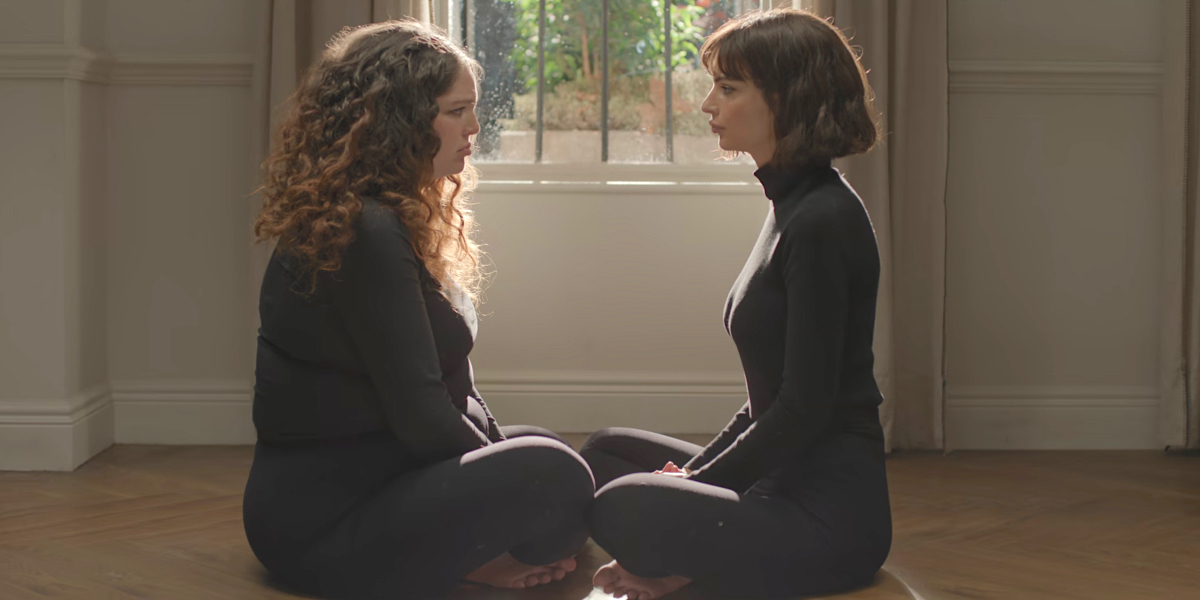I watched the trailer for Mindy Kaling’s Netflix original Never Have I Ever with trepidation. I have a love-hate relationship with high school dramas. When they’re done well, I adore them; when they aren’t, I’m forced to relive the misery of high school while gaining nothing in return. Now, here was this genre with… a South Asian protagonist. I would either cherish or loathe Never Have I Ever. Given how close this show was going to hit home, there really was no room for anything in the middle.
Never Have I Ever tells the story of fifteen-year-old Devi Vishwakumar (Maitreyi Ramakrishnan). In the previous year, Devi’s father suddenly died from a heart attack. Her mother, Nalini, is now raising Devi as a single parent. Living with them is Kamala, Devi’s cousin from India, who is completing her PhD at CalTech. The family is clearly well-to-do, and their community betrays all the markings of the wealthy: house parties at mansions, sixteen-year-olds driving expensive cars and parents hiring private counselors to get their kids into Ivy League colleges.
So… South Asian teen living in a well-off, college-obsessed suburban community. This show was tapping into more than a few aspects of my own high school experience.
As I progressed through the episodes, I found myself growing increasingly agitated. Kaling has a clear skill in creating a world I easily identified with, without hiding any of its shortcomings. But, she has no interest in examining those shortcomings for what they are. Instead, Never Have I Ever falls back on easy storylines that erase the painful realities of so many communities — including the one the series showcases.
Many critics found Never Have I Ever’s high school setting relatable, but Kaling’s depictions traffic far too heavily in damaging stereotypes for my taste. It seems like every character other than Devi and her two love interests are flat caricatures. What’s more, I can’t believe that in 2020 we’re still making fatphobic and ableist mobility jokes on TV, like the ones told about Devi’s classmate Eric and her entire backstory of being temporarily paralyzed.
I found the show’s queer representation to be full of problems. One of Devi’s best friends, Fabiola (Lee Rodriguez), comes out during the season. Fabiola’s growing awareness of her sexuality is handled thoughtfully enough, but her character is largely sidelined. In episode one, Devi picks out boyfriends for herself, Fabiola and their other best friend Eleanor as part of her quest to improve their social standing. As Fabiola goes through the motions of dating this boy she’s clearly not interested in, another classmate, Eve, catches her attention. In the first three episodes, Rodriguez masterfully shows Fabiola realizing the disconnect between her actions and her feelings, but these moments are eclipsed by Devi and her story.
Fabiola’s coming out to her friends and family in the next several episodes continues to be overshadowed, this time by the storyline with Eleanor’s mother and Devi’s abandoning her friends in pursuit of boys. While it’s refreshing that Fabiola’s central story isn’t about being rejected by her family for being queer, it’s hard not to feel like Fabiola is short changed. Fabiola and Eve eventually start dating, but NHIE does no work to develop their relationship, instead taking it as a foregone conclusion for the only two queer girl characters.
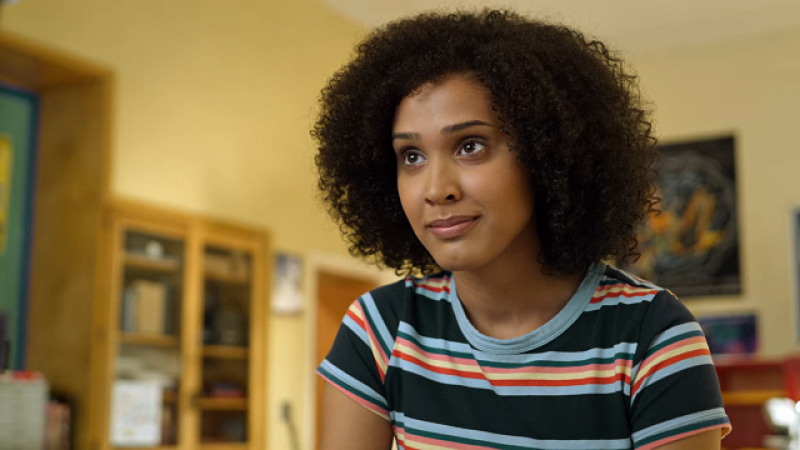
The irony of Never Have I Ever breaking ground with its South Asian representation is that Kaling takes a largely colorblind approach to every other racial identity, and this, too, bogs down Fabiola. Even though Fabiola is Afro-Latina that aspect of her identity is never broached, even in passing.
With this omission, the show’s presentation of queer culture is incredibly white washed. The only other queer characters are Eve and Jonah (who Fabiola and Eleanor befriend after Fabiola comes out). Eleanor aptly describes Eve as “Kristen Stewart in Charlie’s Angels.” (The other option Eleanor gives Fabiola when she asks “her type” is “Kristen Stewart in Twilight” — as if the very white Kristen Stewart solely embodies the multitudes of queer women worldwide.) Jonah is your standard straight-person caricature of a cis white gay man — I’m not even sure in what universe Jonah’s character passes as a teen.
Even worse, by tokenizing Fabiola, NHIE perpetuates anti-black racism. From the first episode, we’re thrust into a years-long rivalry between Devi and her classmate Ben that is entirely predicated on the zero-sum game of college admissions. Fabiola is clearly a genius – she’s built an interactive robot and is studying Latin and French at the AP level as a sophomore (whether she speaks Spanish never comes up). Why, then, does Fabiola not factor into Devi and Ben’s competition? Like far too many black women, Fabiola’s brilliance goes unseen by her white and Asian peers.
In her real life, Kaling has a problematic close proximity to this relentless pursuit of elite post-secondary degrees that has led too many Asians to pursue the anti-black racist claim that race-conscious admissions causes colleges to discriminate against them. Overwhelming data points to the contrary, but the claims persist. (Swathes of underqualified white students are accepted as legacies, at the expense of highly qualified Black and Latinx students.) In fact, NHIE delves right into this mess when a college counselor tells Devi that “schools don’t want another Indian try-hard.” The show cleans it up by having the counselor deflect to “colleges want kids with unusual stories.” Kaling may not repeat the racist lie verbatim, but she certainly skirts it.
Kaling’s depiction of Indian community isn’t as superficial as her other representations, but it’s equally thoughtless.
Never Have I Ever portrayed a Hindu-Indian community I immediately recognized. It’s most apparent in episode four when Devi’s family attends Ganesh puja, which is part religious observance, part social gathering. Nalini is expecting pity from the other women because she is now a widow; her expectations are met in encounter after encounter. I found the community dynamics incredibly familiar: the back-handed compliments, the veiled braggadocio, the endless one-upping. But Kaling doesn’t stop there. She doesn’t shy away from laying bare the Islamophobic underbelly of Hindu-Indian community.
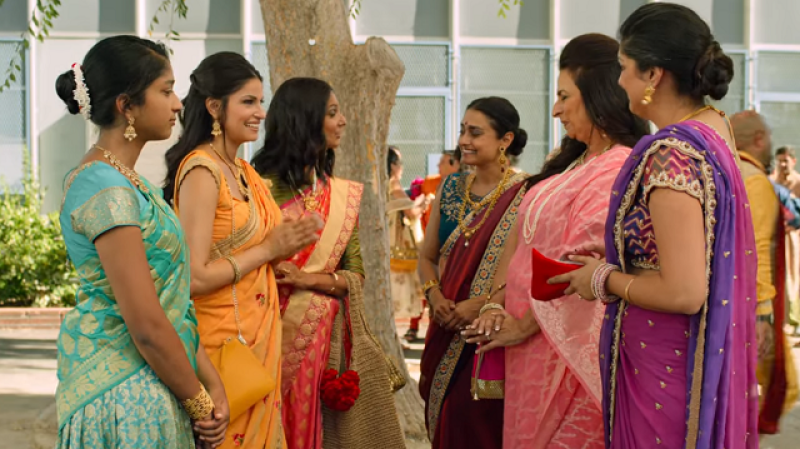
At the puja, the family runs into a woman who was ostracized for marrying a Muslim. Nalini’s disdain for Muslims and Kamala’s shock at that particular detail are clearly evident. Yet, the show moves forward without skipping a beat. Meanwhile, while NHIE was in production, India stripped the only Muslim-majority state of its constitutionally-guaranteed autonomy and implemented a communications blackout that’s lasted ten months and counting, started building Muslim detention camps and passed a citizenship act that could lead to the deportation of Indian Muslims.
That now-divorced woman’s assessment of her situation? “I wish I had just listened to my family and married the guy that they chose.” This is more than a missed opportunity. By showing a Hindu-Indian community engaging in casual Islamophobia while simultaneously erasing Muslim-Indian communities, Kaling is normalizing the bigotry that has led to increasing degrees of systemic violence over the past several decades in India.
Never Have I Ever similarly tramples through the minefield of arranged marriage. Arranged marriage is actively practiced by South Asians across socioeconomic classes. In an effort to sanitize the practice for a globalized world, many middle class South Asians point to matrimonial websites and the (relative) agency they provide. To me, this emphasis on “semi-arranged” marriages glosses over persistent and gendered problems that also transcend class.
One of my cousins had an arranged marriage that was a “good match” (both families are incredibly wealthy), and the couple had some liberty (they went on a handful of supervised “dates”). It’s become increasingly clear, though, that my cousin has had to completely curb her playful enthusiasm to match her husband’s quiet reserve. It’s difficult to see her so changed; as my sister put it, “A part of her soul has to have died, right?”
In NHIE, Nalini is pushing Kamala into an arranged marriage on behalf of Kamala’s parents in India. In episode two, Nalini preps Kamala for an upcoming conversation with her potential in-laws by forcing her to present more traditionally feminine and emphasize her skills as a homemaker, rather than talking about her research. The show wants us to believe this is just temporary to reel in the catch. But I can’t help but think of my cousin: Will her act ever be up?
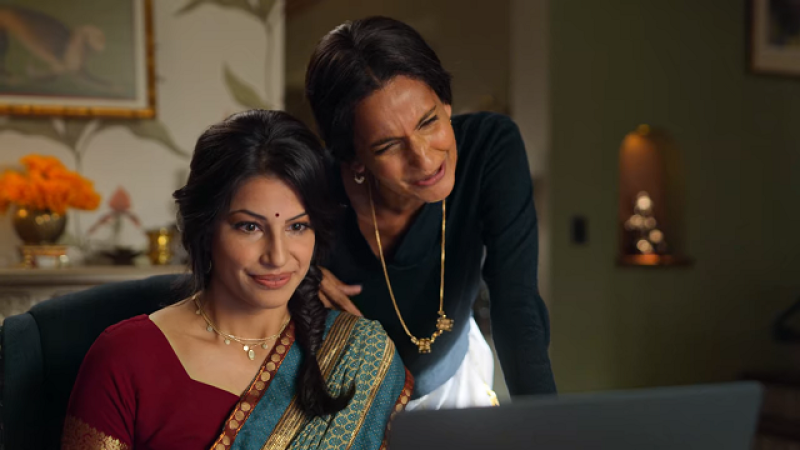
Later, in episode nine, Kamala dumps her East Asian boyfriend because the stranger her parents chose turns out to be hot. With Kamala’s story and the story of the woman who had married and divorced a Muslim man, the show reinforces the morals around marriage most of us are raised with: family knows best. Which really means: when children, especially women, exhibit independence and true agency in their relationships, they are setting themselves up for a lifetime of shame and misery.
Perhaps most upsetting, Kaling exposes the abuse that goes unquestioned in too many South Asian families but refuses to question it. In episode two, Nalini threatens to smack Devi for calling her a “bitch.” She immediately defends herself to her white neighbor, saying stridently, “Smacking is still an acceptable punishment in many minority cultures,” and the show moves on. While Nalini’s statement might be true, that doesn’t make it ok. This is an issue that divides the community, and Kaling clearly doesn’t want to take a stance. But not taking a stance is taking a stance when you only show one perspective.
Nalini’s emotional abuse gets passed off as an aspect of her personality, her exacting Indian standards and her coping mechanism for grief. The show makes clear that her behavior predates her husband Mohan’s death through a flashback of Nalini berating Devi. At one point, Devi overhears a particularly painful exchange between her parents:
Nalini: You are too easy on her.
Mohan: No, I’m not. I just have a different approach.
Nalini: Okay, great. Then why don’t you raise her? Because I give up. I am done. She’s too headstrong and doesn’t listen. Whoever this child is I am through with her!
Mohan: Nalini…
Nalini: No, no, no. That’s your child. She’s no daughter of mine.
First, I’m tired of watching the limited representation of South Asian families perpetuate the lie that South Asian fathers are kind and understanding while South Asian mothers are – in the words of Devi – “a bitch.” We see this play out in Bend It Like Beckham, I Can’t Think Straight, Ackley Bridge and Four More Shots Please. This dynamic isn’t as prevalent as Western media makes it seem, and it’s time for more narratives that show the reality of the patriarchy so many of us grow up with.
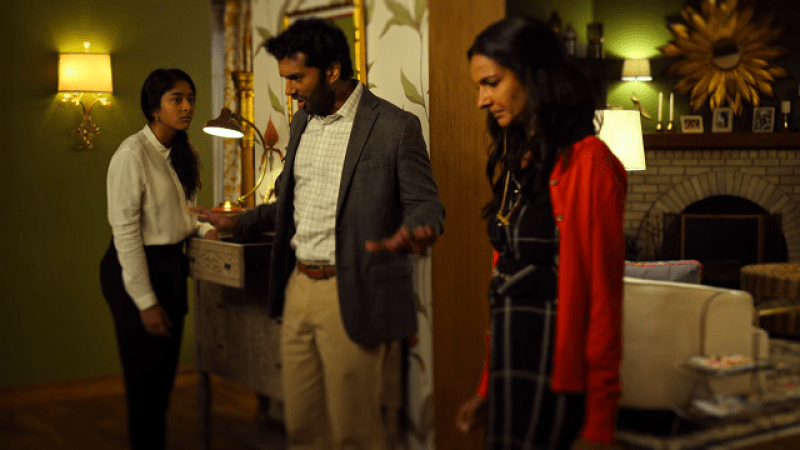
Second, Nalini never acknowledges how she’s hurt her daughter and, worse, rationalizes her toxic behavior. Nalini visits Devi’s therapist who asks Nalini why she thinks Devi doesn’t like her. Nalini replies, “Because I’m tough on her” rather than admitting those painful words Devi overheard. She then justifies her harshness as stemming from being “scared all the time [for Devi].” The show engages in the gaslighting that is characteristic of too many Asian families: I don’t have to show you that I love you. You should just believe that my yelling and being hard on you means I care.
The closest we get is at the very end when Devi and Nalini make up. Even then, Nalini fails to take responsibility for Devi’s pain, saying instead, “I know you think it was your father who was the only one who cared about you, but that’s not true. I love you. You’re my whole family.”
What do those words even mean after everything that’s happened between them that they still haven’t actually talked about?
In an interview with the New York Times, Kaling acknowledged that, with such limited media representation, her show would be expected to represent everyone in the South Asian community and that would, inevitably, lead to disappointment. But the reason I didn’t like Never Have I Ever wasn’t because I didn’t feel seen. It’s because Kaling and I are clearly looking at the same world, but Kaling is expecting me to overlook all of its pain.







